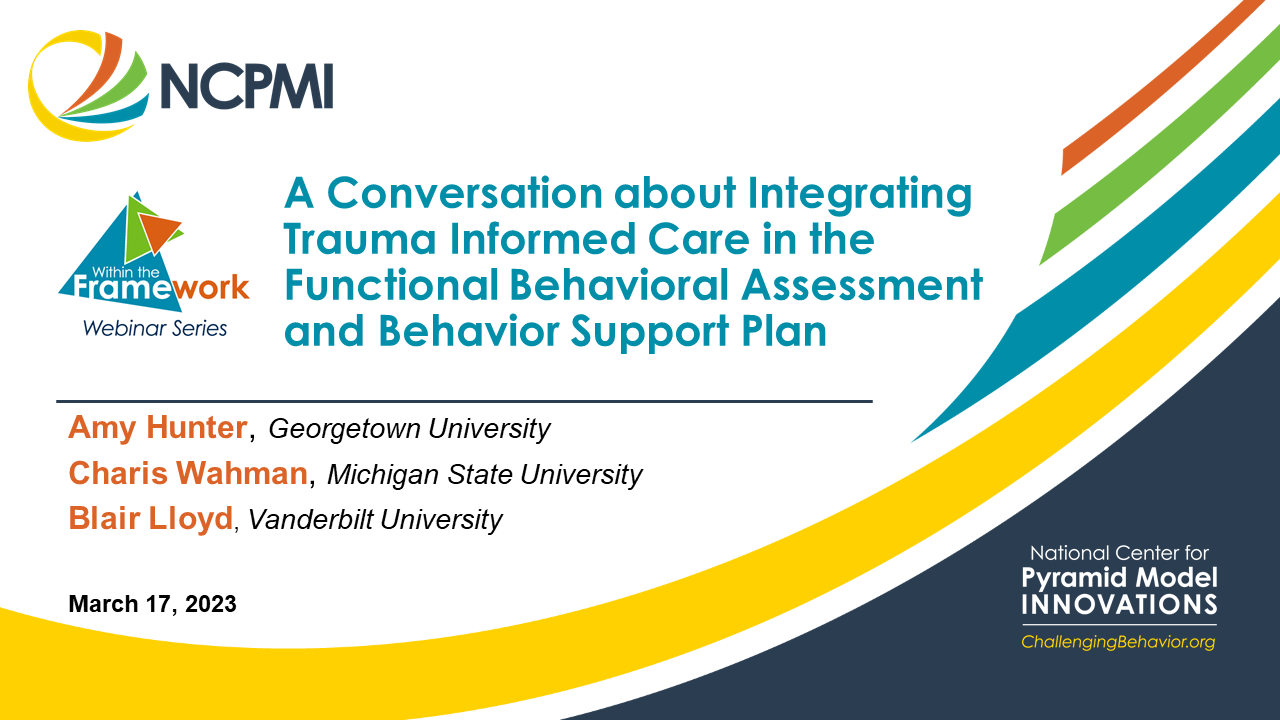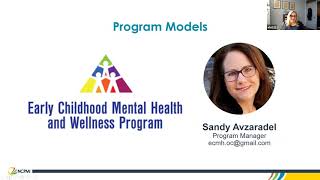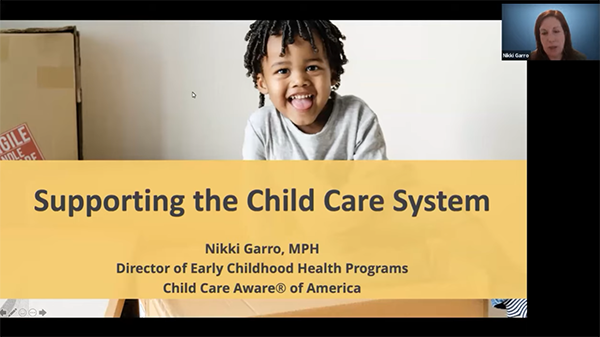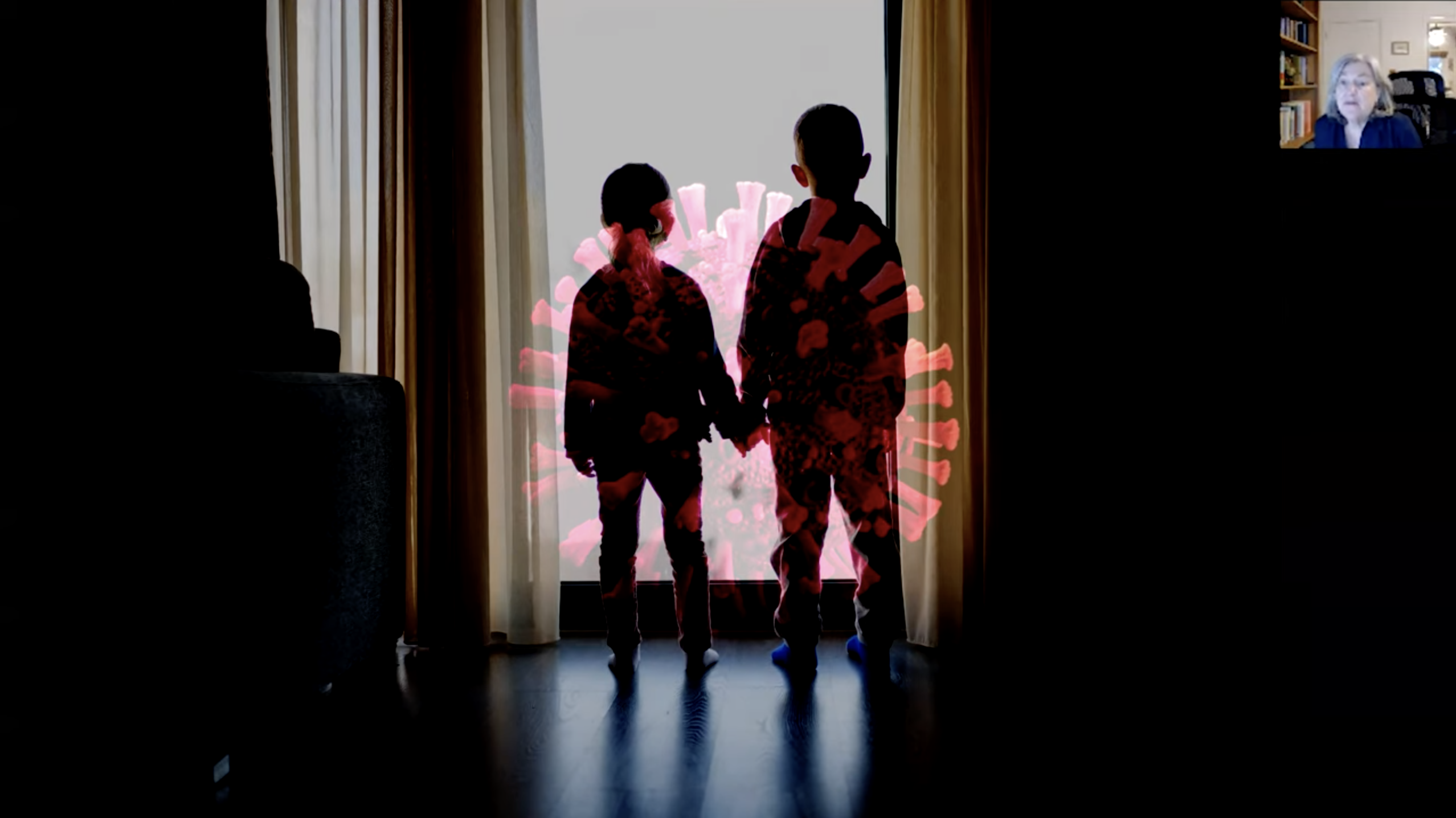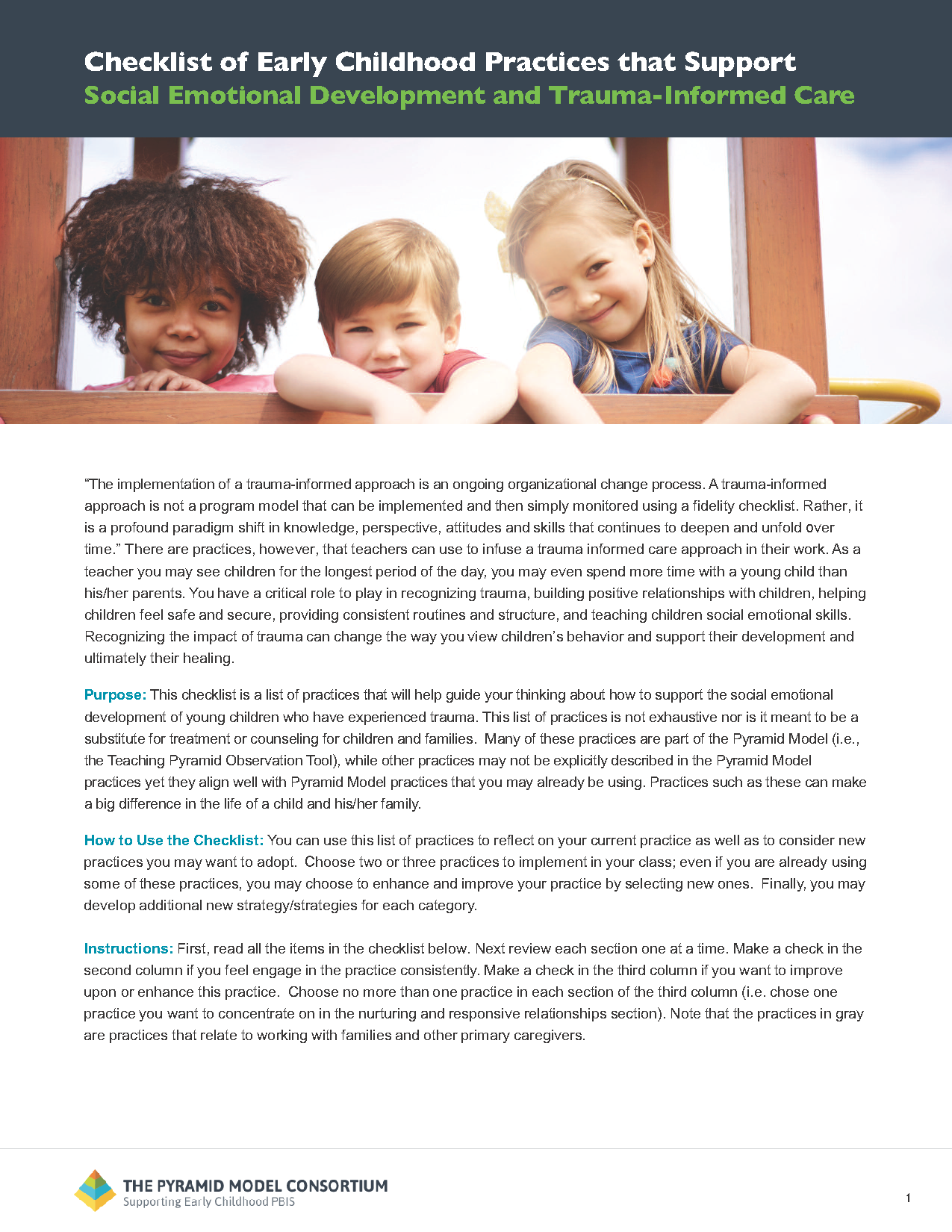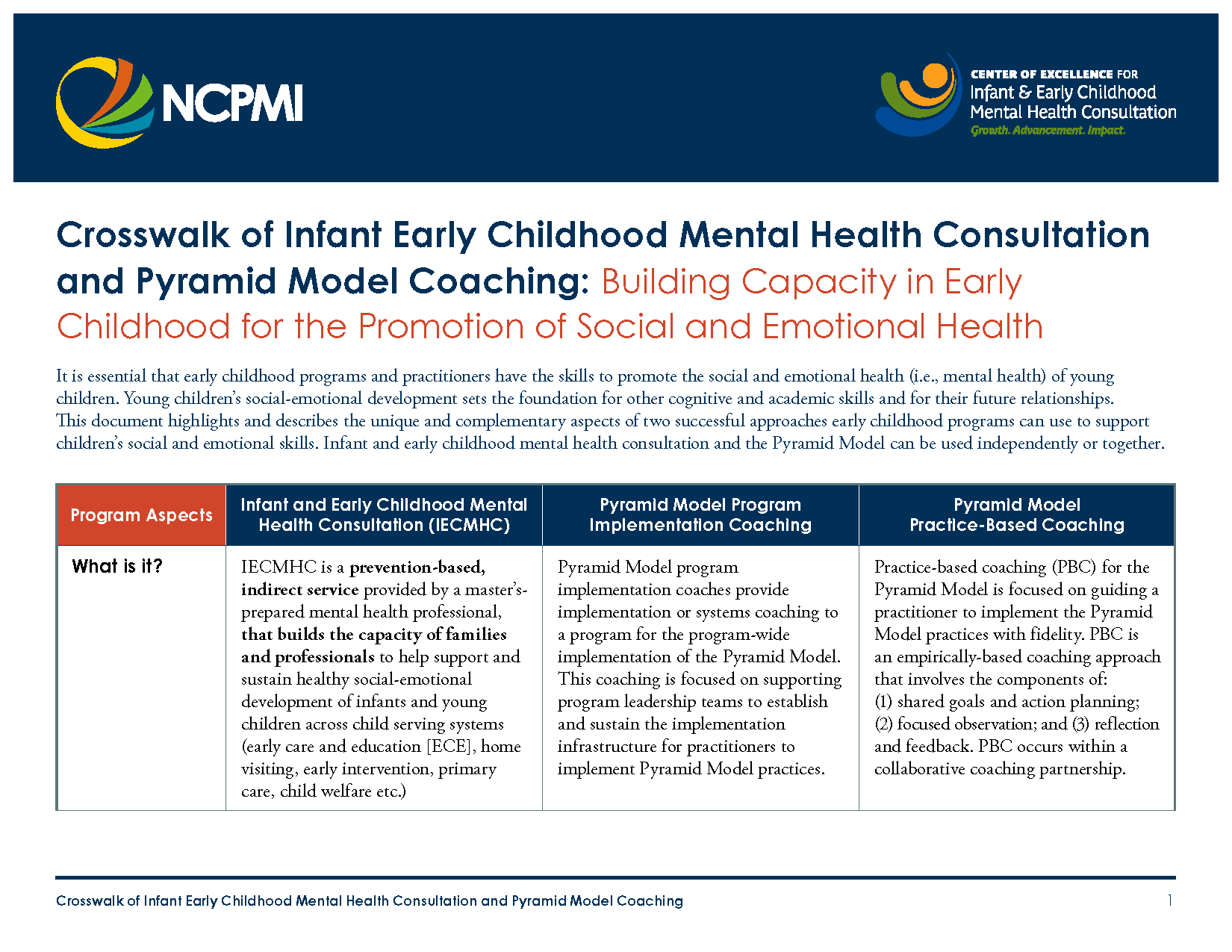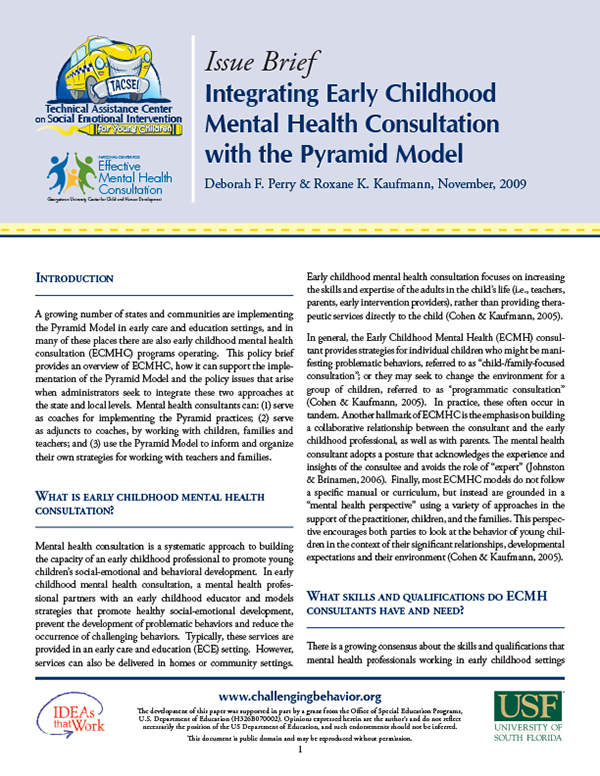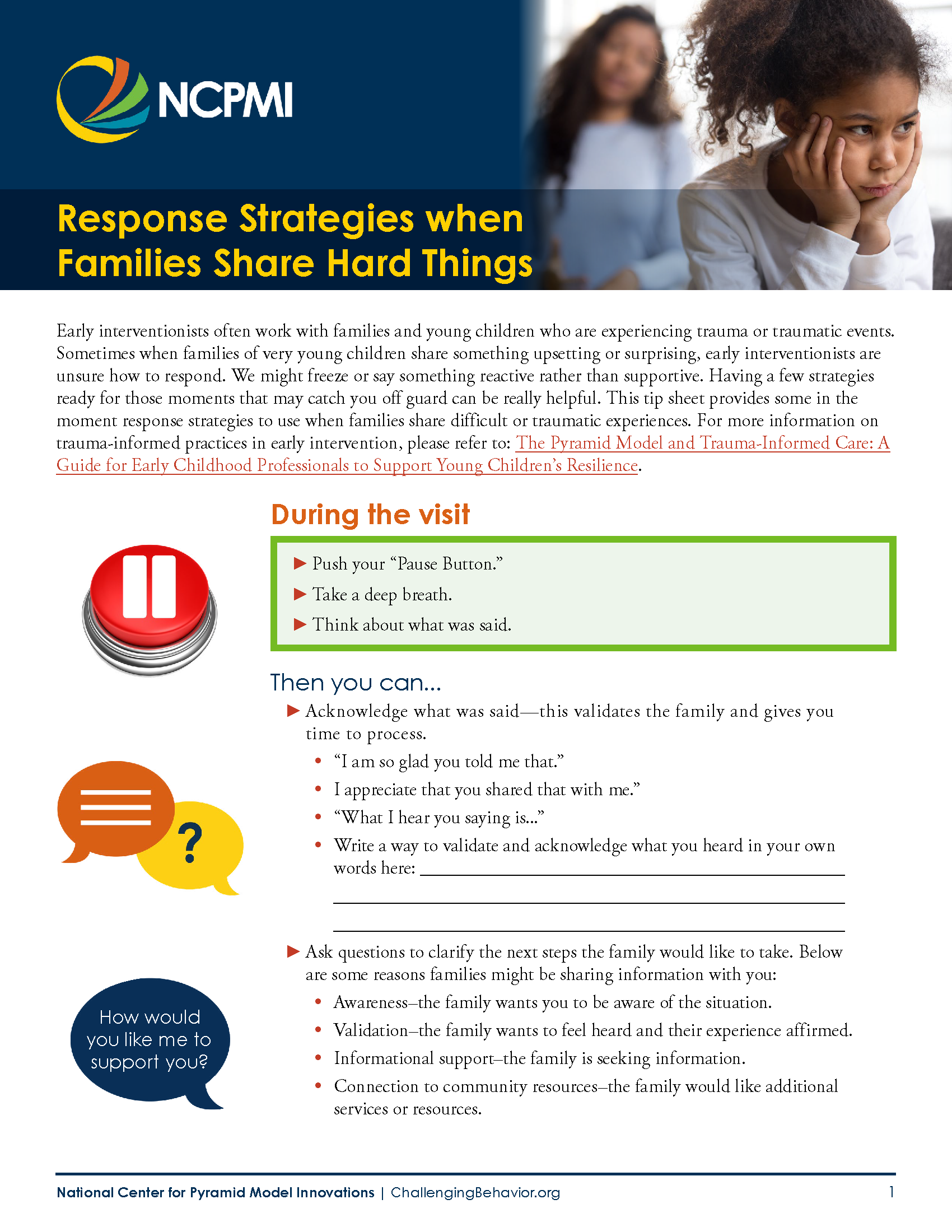Infant Early Childhood Mental Health Consultation (IECMHC) is prevention-based service that pairs a mental health consultant with families and adults who work with infants and young children in the different settings where they learn and grow, such as child care, preschool, and their home. The aim is to build adults’ capacity to strengthen and support the healthy social and emotional development of children―early and before intervention is needed.
Both IECMHC and the Pyramid Model have a strong focus on the critical importance of positive relationships in the early years of a child’s development. Both approaches focus on building the capacity of professionals and families to support young children’s social emotional development. An IECMH consultant can support Pyramid Model implementation through consultation to the program leadership team, consultation to practitioners, and guiding the provision of supports and services to children and their families. The IEMHC might bring additional expertise to the Pyramid Model framework such as: considering trauma-informed care; curricula and/or strategies to enhance children’s positive relationship or attachment to caregivers; supporting staff and/or families experiencing depression and/or adversity, working with families with substance use problems, etc.
Related Resources
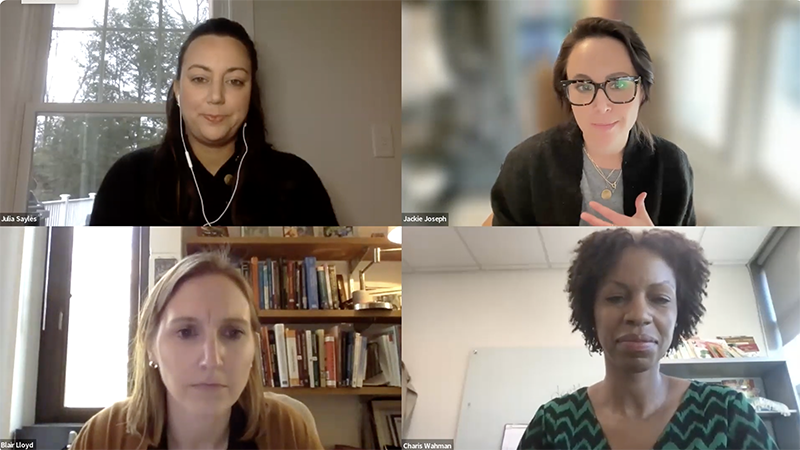
Join us for another conversation dedicated to implementing the individualized intensive intervention process while honoring the unique experiences of children who have experienced trauma. We will build on the March 2023 webinar to discuss the approaches teams might use as they engage in functional behavior assessment, plan development, and plan implementation to support a child who has experienced trauma.
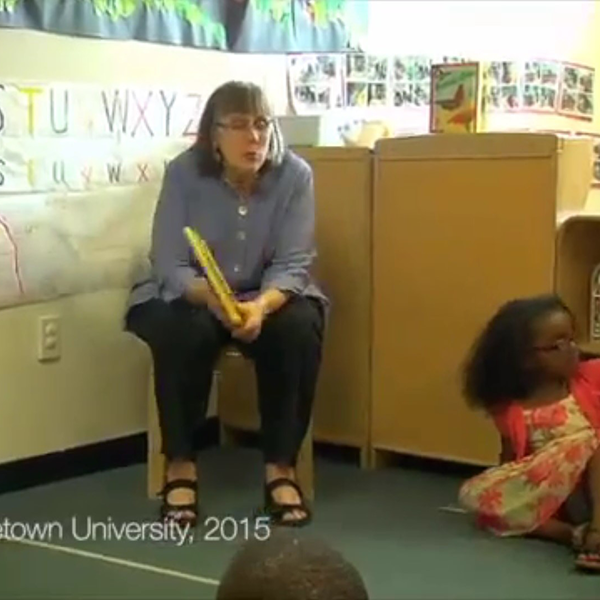
An IECMH Consultant supports the skills and strengths of program leaders, staff, families, and children during a typical day in a classroom setting. Explore other resources about IECMHC at www.samhsa.gov/iecmhc.
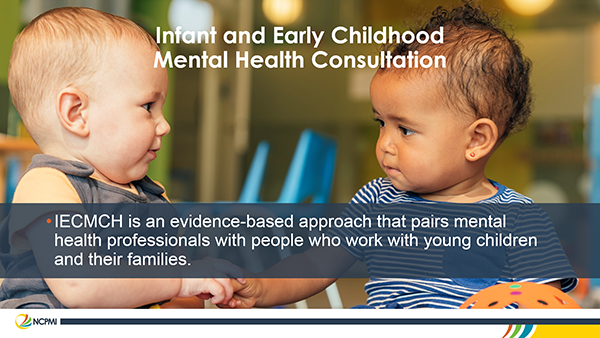
Infant and Early Childhood Mental Health Consultation (IECMHC) is an evidence-based approach that pairs mental health professionals with people who work with young children and their families. Professionals who provide IECMHC can be critical partners in the implementation of the Pyramid Model within early childhood education and care programs including assisting programs with concerns such as trauma, crisis in communities, staff wellness, and connections with community services. The webinar panel will discuss the relationship between the mental health consultant and the Pyramid Model leadership team and the supports that might be provided by the mental health consultant to build the capacity of the program and personnel as they provide services to young children and their families.
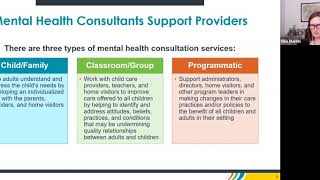
Infant and Early Childhood Mental Health Consultation (IECMHC) is emerging as an evidence-based intervention for supporting young children’s social and emotional development and addressing challenging behaviors. IECMHC aims to improve the ability of staff, families, programs, and systems to prevent, identify, treat and reduce the impact of mental health problems among children from birth to age 6 and their families. IECMHC occurs within the context of a collaborative relationship between a consultant with mental health expertise and early care and education provider, and/or a family member (Cohen & Kaufmann, 2000). In this webinar, we explain the relationship and role between IECMH consultants and Pyramid Model coaches. We also discuss how coaches can identify when they might need the support of a mental health consultant, and how to locate resources when the staff, families, or children they are working with require access to mental health supports.
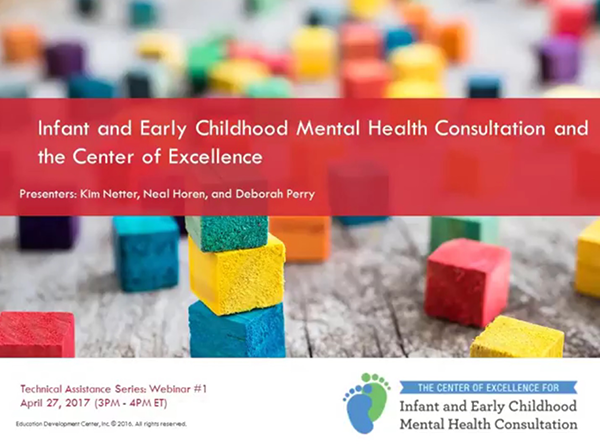
Watch this webinar recorded on 4/27/17 to learn more about Infant Early Childhood Mental Health Consultation and the Center of Excellence. This video defines IECMHC, outlines its history, importance and impact, delineates the key messages, and highlights the work of the Center of Excellence.
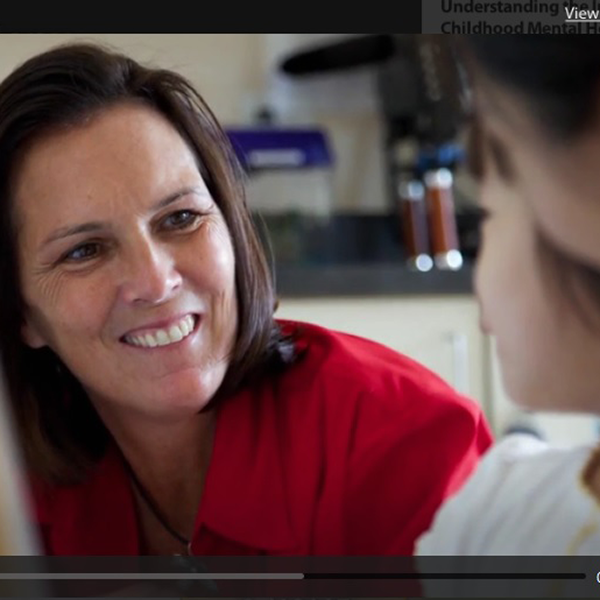
The Infant and Early Childhood Mental Health Consultation (IECMHC) learning module highlights the role of the IECMHC. The interactive module is divided into lessons with realistic scenarios and short video clips. Each lesson has its own resource area designed to provide extensive support around IECMHC. Revisit it as needed to gain a better understanding of your role as a Head Start IECMHC.
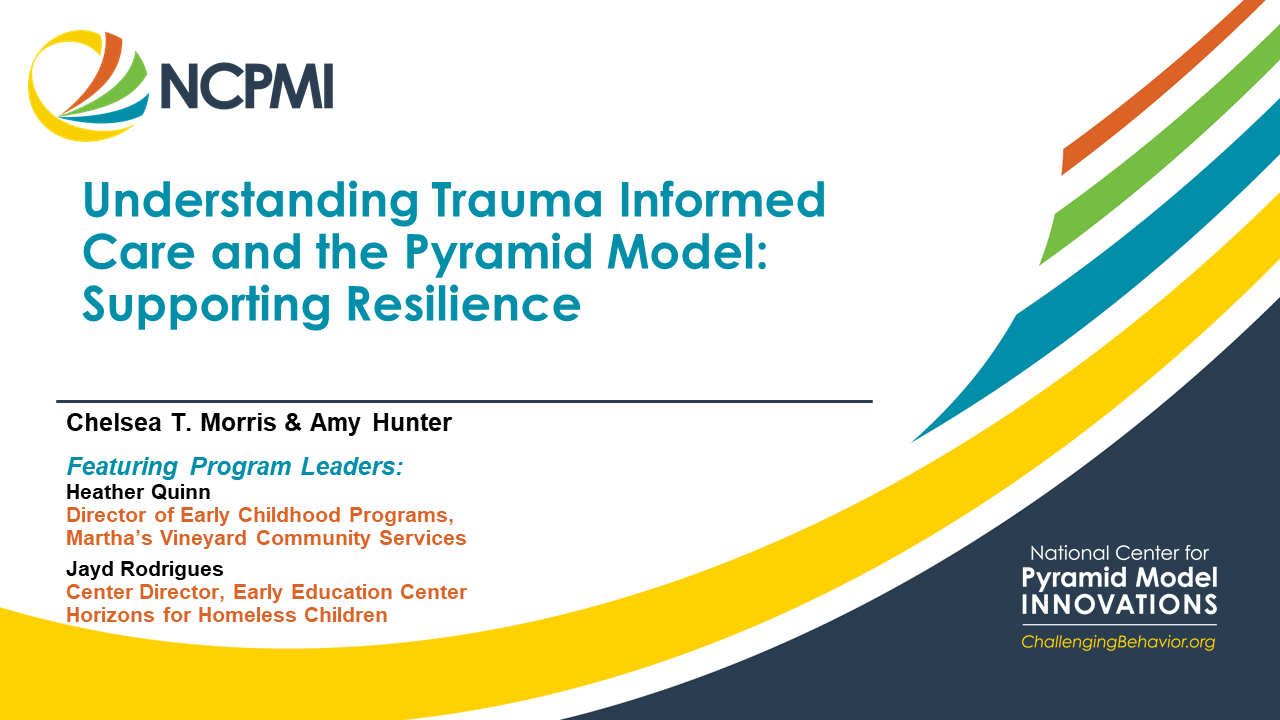
Childhood trauma may be more common than you think. Roughly 26 percent of children in the United States witness or experience a trauma before the age of 4 (Briggs-Gowan et al. 2010). It is highly likely that there are children who have experienced trauma in every early childhood classroom. Often early educators are not aware of what children have experienced in their early lives. Join this webinar to hear more about trauma informed care, the Pyramid Model and how these approaches support resilience for all children including those who have experienced trauma. This webinar will highlight how two early childhood programs use the Pyramid and trauma informed care to support children in their care. This webinar will also share resources you can use in your own programs.
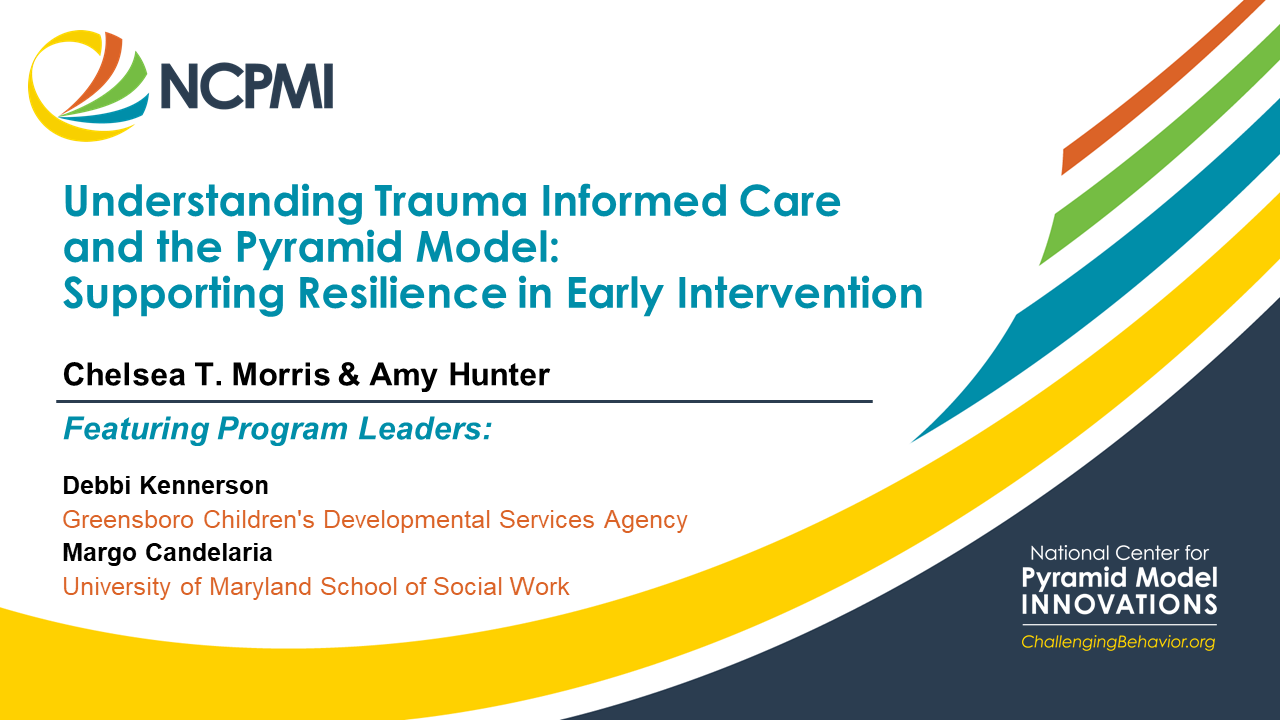
Childhood trauma may be more common than you think. Roughly 26 percent of children in the United States have witnessed or experienced a trauma before the age of 4 (Briggs-Gowan et al. 2010). It is highly likely that each provider in Early Intervention has worked with children and their families who have experienced trauma. Providers may not be aware of what a child has experienced, nor how the experiences impact the child and family. Join this webinar to hear more about trauma informed care, the Pyramid Model, and how these approaches support resilience for all children in early intervention, including those who have experienced trauma. This webinar will highlight the experiences of two Early Intervention programs, and will share resources you can use in your own programs.
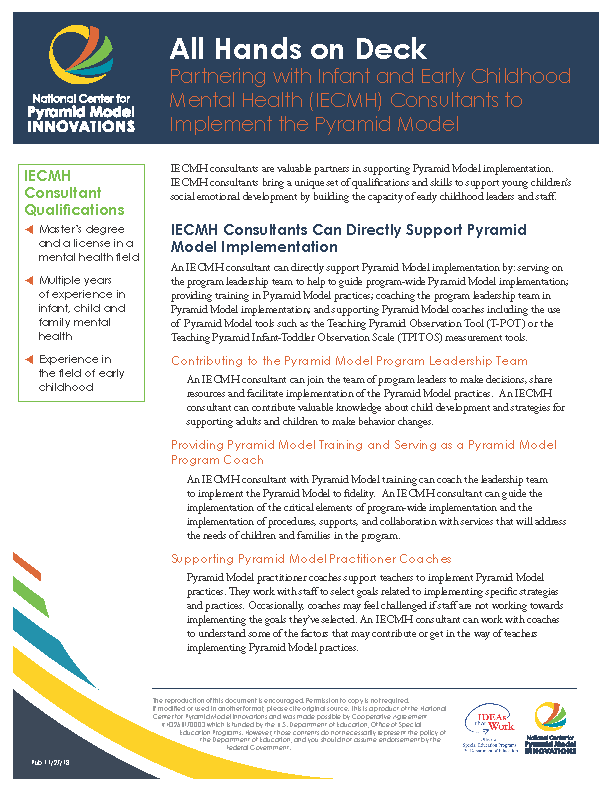
This fact sheet describes how programs might partner with IECMH consultants to implement the Pyramid Model. The fact sheet provides detailed information on how the IECMHC can contribute to leadership team and program activities.

This fact sheet defines the roles of Pyramid Model coach, mental health consultant, and mental health therapist and answers frequently asked questions about these roles.
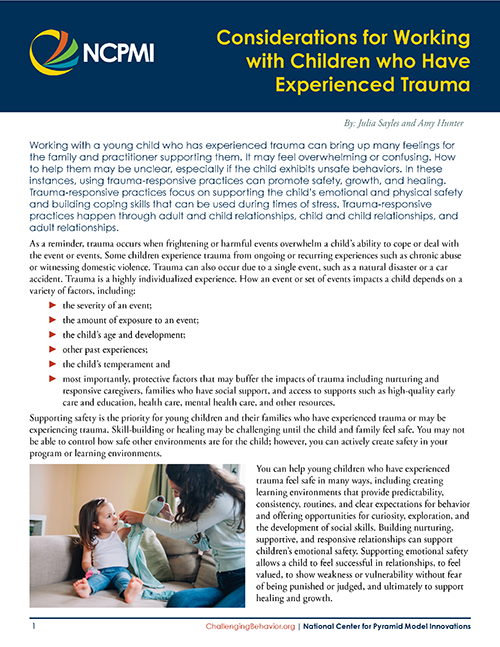
This practice brief provides prevention strategies to help children with challenging behavior who have been exposed to trauma and strategies for responding to children when they are trauma-activated.
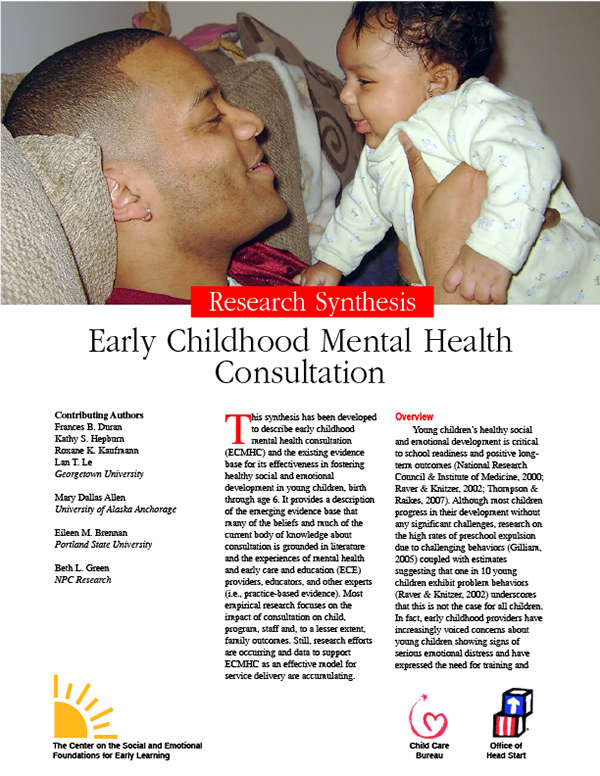
This synthesis has been developed to describe early childhood mental health consultation (ECMHC) and the existing evidence base for its effectiveness in fostering healthy social and emotional development in young children, birth through age 6. It provides a description of the emerging evidence base that many of the beliefs and much of the current body of knowledge about consultation is grounded in literature and the experiences of mental health and early care and education (ECE) providers, educators, and other experts (i.e., practice-based evidence).
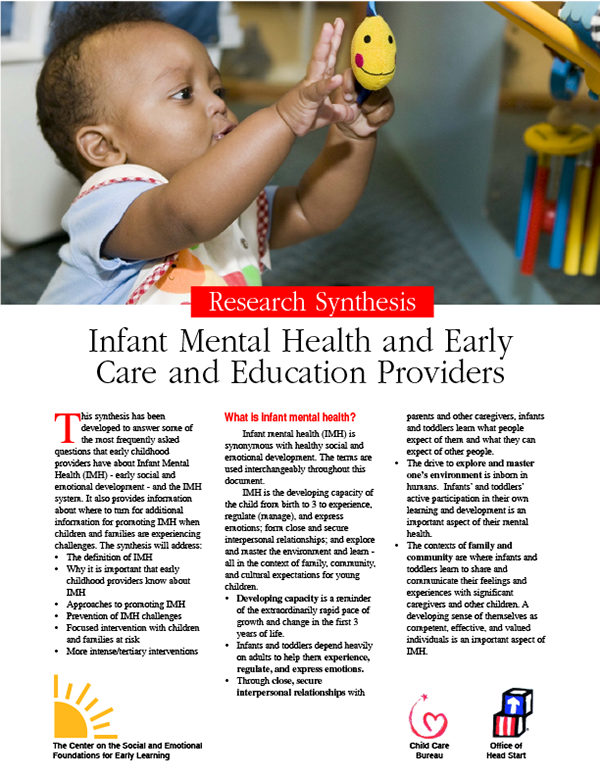
Research infant mental
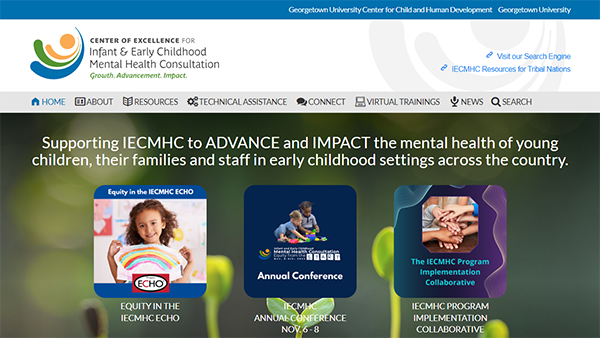
The CoE for IECMHC is a national technical assistance center dedicated to the advancement and impact of the field of IECMHC through training, technical assistance and resource development.

This guide provides resources that support early childhood professionals to integrate the Pyramid Model practices and trauma-informed care. The intended audience includes program leaders and administrators, educators, and staff in early intervention and early childhood classrooms. The purpose of this guide is to help early childhood professionals apply the principles of trauma-informed care in various settings to meet the diverse needs of young children and their families who have experienced trauma.
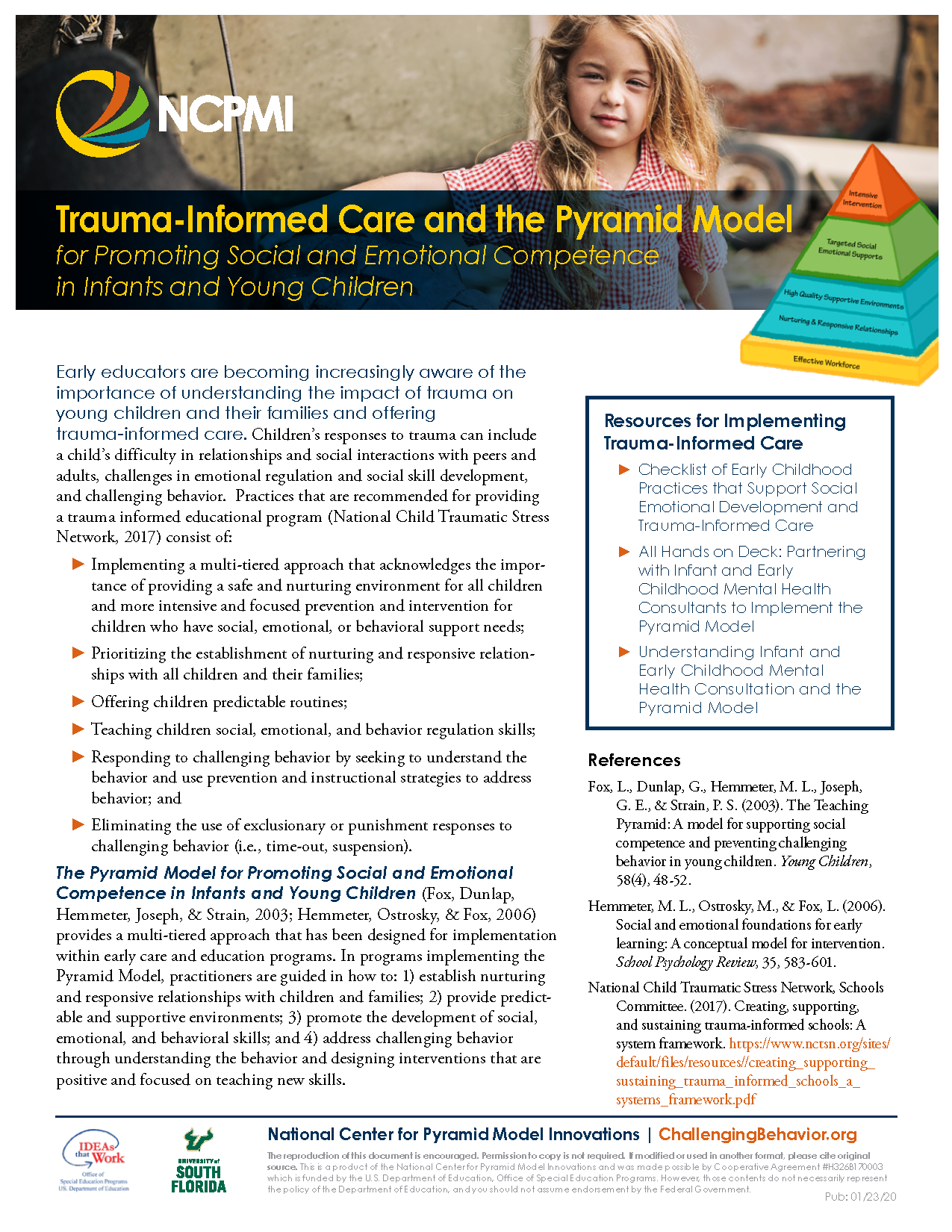
This factsheet outlines the recommended practices, developed by the National Child Traumatic Stress Network, for providing a trauma-informed educational program and how the Pyramid Model supports these.
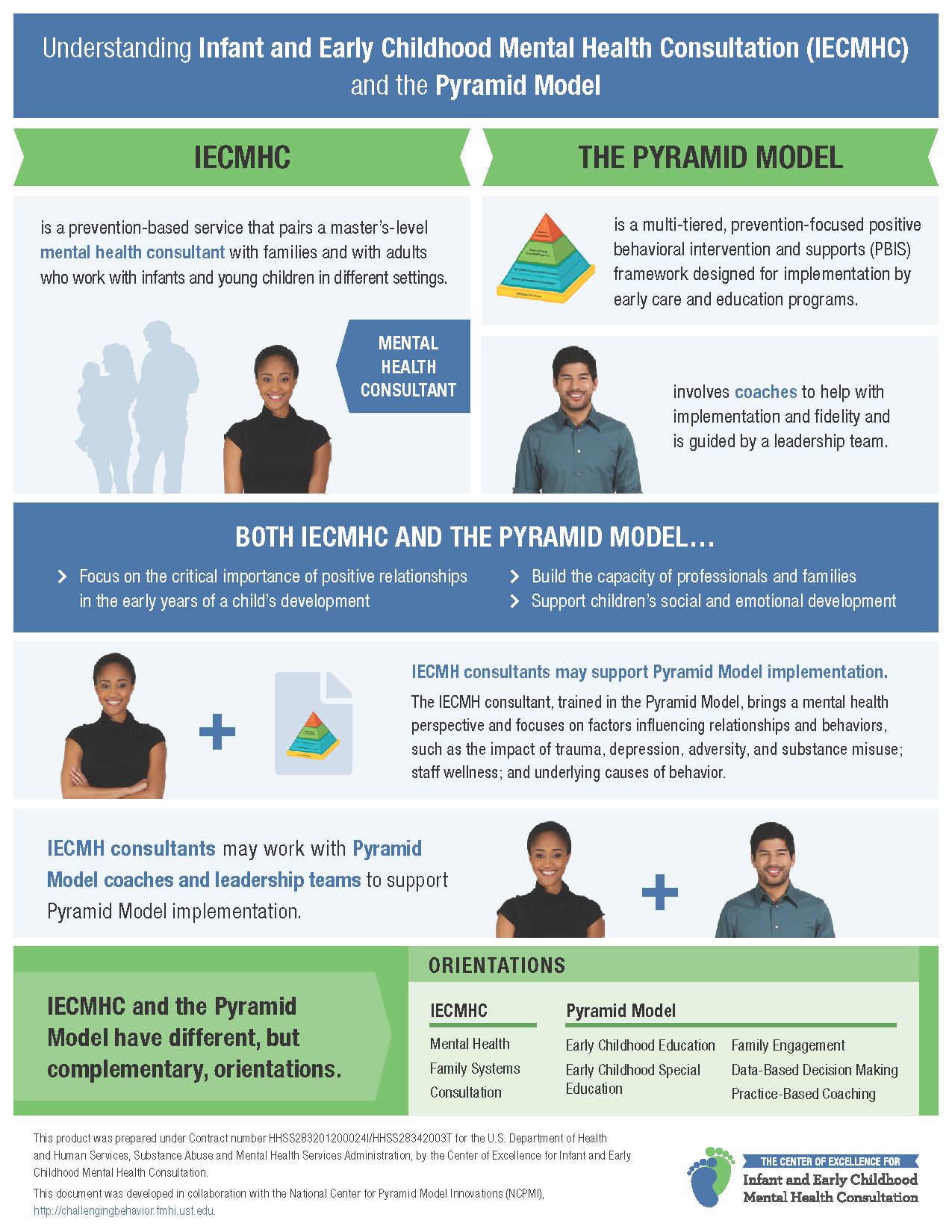
This fact sheet shows how Infant and Early Childhood Mental Health Consultation works together with the Pyramid Model.
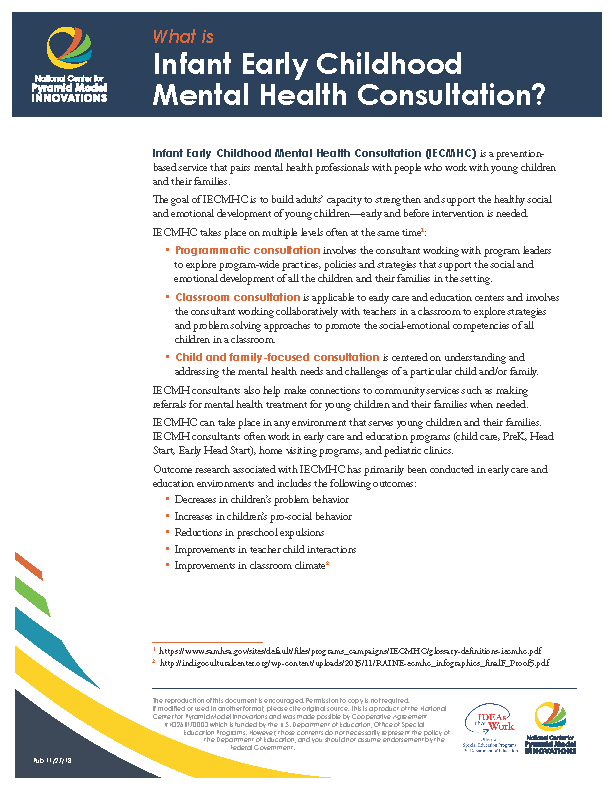
What is Infant Early Childhood Mental Health Consultation and what services do they provide.

